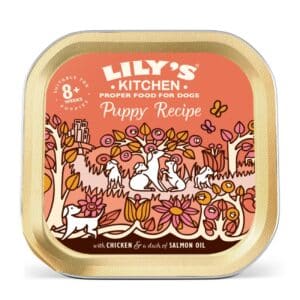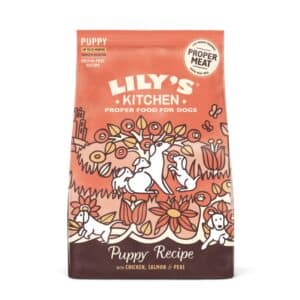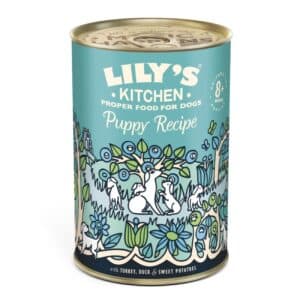
Feeding Your Puppy
Your puppy’s diet is essential to help support their growth and development and build a healthy immune system. Here you’ll find our top tips on feeding your puppy – their needs, choosing the right food and giving your little bundle of fun all the nutrients they need to grow into a healthy, happy dog.
Puppies Grow Quickly
Puppies grow quickly in the first few months, so puppyhood is the most nutritionally demanding time in their life.
As a general rule a puppy’s nutritional needs can be divided into two main phases – the fast growth rate of the young puppy, followed at about five months of age by the slightly slower rate of the adolescent.
Large and giant breed dogs have a slightly different growth pattern, reaching their mature body size slightly later. Some large and giant breeds don’t stop growing until they are 15-18 months old, whereas some small breeds are at their adult weight at 6 months of age.
Your Puppy’s Needs
Whatever their breed, because they are growing so fast, puppies have a higher requirement for protein, energy and calcium than an adult. In fact, from birth until they reach 50% of their adult weight, your puppy will have around double the daily energy requirements of an adult.
Along with their exercise, diet will have the greatest effect on your puppy’s bones and joints, and hence their size, shape, strength and fitness as an adult.
If your new pet is coming from a breeder, it’s most likely they will have been weaned before you go to collect them. Weaning occurs around 4-8 weeks and is where the pups start to rely less on their mother’s milk and puppy food is slowly introduced.
If you have the challenge of weaning, remember to introduce the puppy food gradually and only use tiny amounts. You should always soften the kibble by soaking it in warm water, so it resembles Weetabix. Allow this to fully hydrate and cool before allowing the puppy to dig in to their bowl of food.
If your pup is happily enjoying their food with ease, you can build this into their daily feed. However, remember pups only have tiny stomachs and so little and often is the best approach.
Young puppies need to be fed a diet that has been specially formulated for growth, so it’s important to choose a diet that is labeled as being ‘for puppies’.
-

Chicken Puppy Recipe 150g
We believe puppies deserve the very best start in life, which is why we have spe...
€1.80 -

Lily’s Kitchen Chicken & Salmon Puppy Recipe Complete Dry Dog Food
A unique, grain free, dry and complete recipe for puppies with lots and lots of ...
Price range: €29.99 through €74.99 -

Lily’s Kitchen Turkey & Duck Puppy Recipe 400g
This delicious and nourishing vet approved puppy recipe gives the newest member ...
€3.65
Little And Often
Puppies have small stomachs and a high metabolic rate, so need to be fed little and often. At around three to four months of age, they’ll be having three to four meals a day, and this can be gradually reduced down to twice daily feeding by the time they’re around five to six months old.
Make Any Changes Gradually
It’s a good idea to stick with the same food that your puppy arrived with, (the same that they had at the breeder), for at least the first few weeks before gradually changing them onto a diet of your choice. This will lead to fewer tummy upsets!
Always make any dietary changes gradually. Sudden changes to the diet can cause tummy upsets. So, if you are either changing to a diferent recipe or changing to a new food, do so gradually over 4-5 days.

Healthy Treats
Obesity is a huge problem in the canine population and it often starts in puppyhood. Choose healthy dog treats full of naturally nutritious ingredients such as Lily’s Kitchen puppy treats, or try small pieces of apple or carrot.
The Best Start For Your Puppy
Lily’s Kitchen Puppy recipes have been specially created for your growing puppy and provide the best nutrition for them in a delicious way. These recipes have the right levels of protein to support healthy growth, and prebiotics to help support the digestive system.
Our food for puppies contains chelated minerals for easy absorption, salmon oil for healthy skin and fur, and joint support from glucosamine and chrondroitin.
